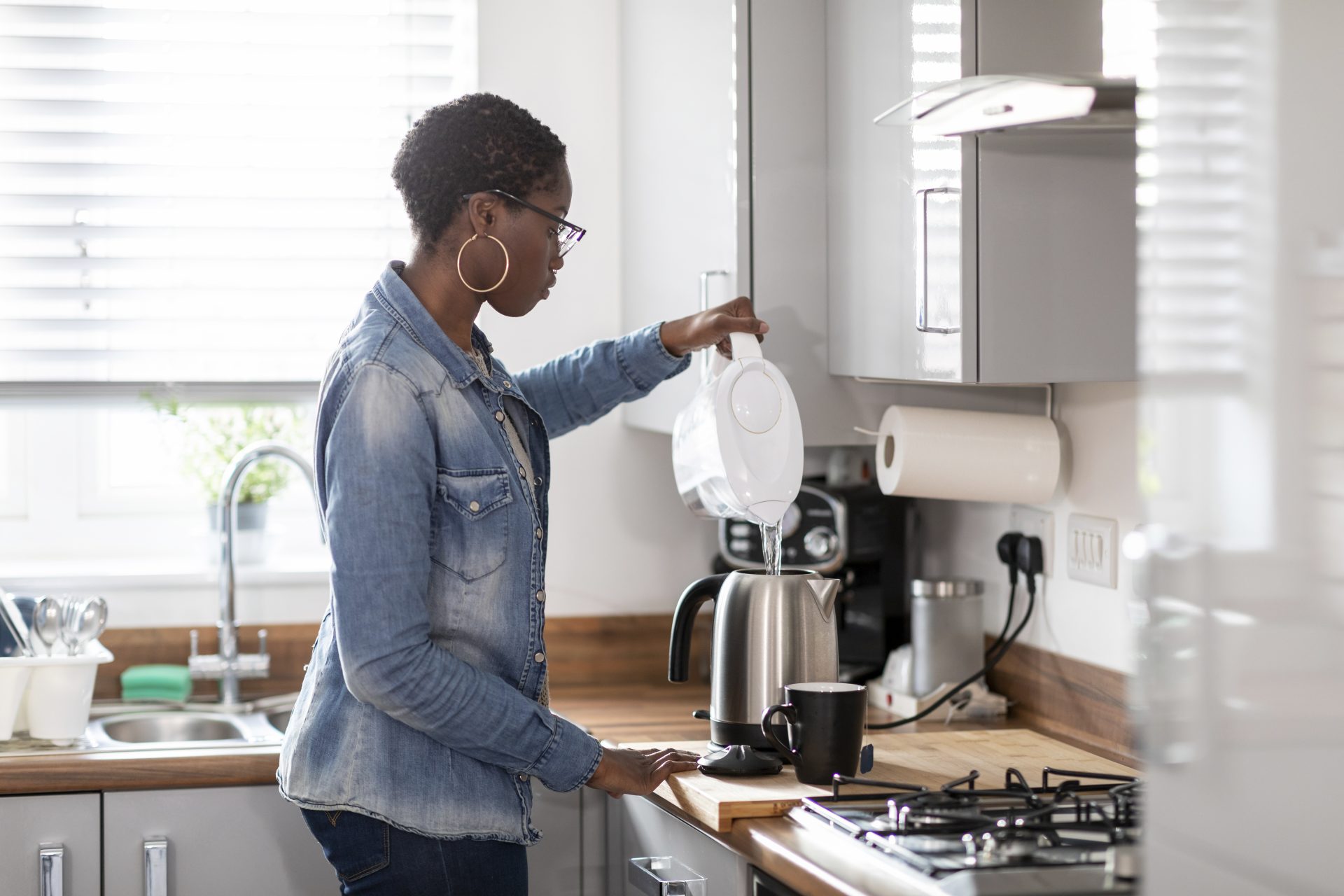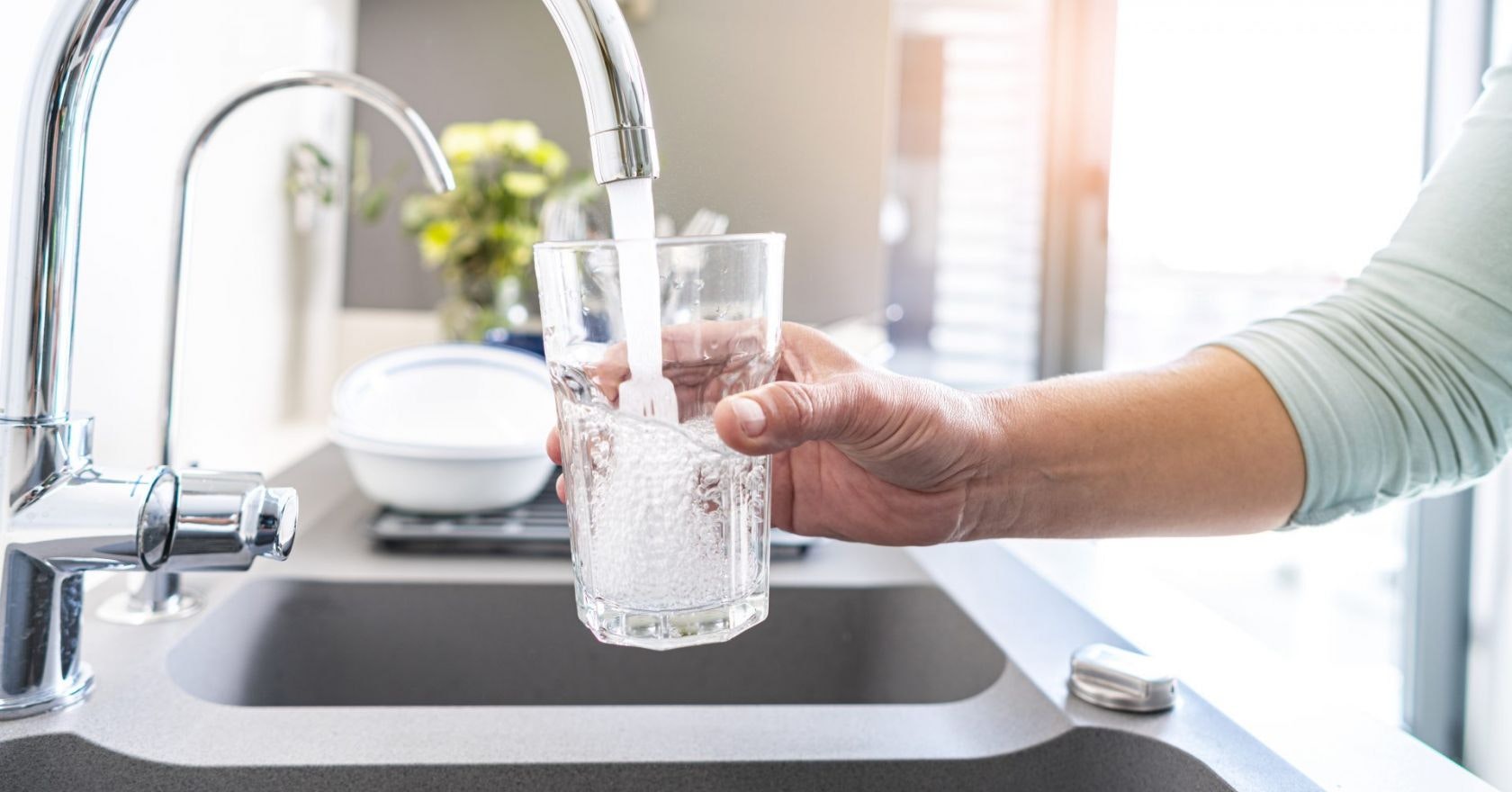Living in a hard-water city can be difficult: your kettle gets limescale, your shampoo never bubbles and often there are traces of pharmaceutical compounds floating around. But is unfiltered tap water actually bad for you? Strong Women editor Miranda Larbi investigates.
When it comes to wellness, there’s one habit we’re routinely advised to get behind: drinking plenty of water. In fact, such is our obsession with hydration, that some healthcare professionals are now claiming that we’ve been conned into over-hydrating by water bottle manufacturers and companies intent on having us drink ourselves into a liquid oblivion.
Wherever you stand on hydration, however, we can all agree that drinking some water – however much or little – is important for energy, digestion and regular cell health. But does the quality of our water matter? Given the nature of the water cycle and the fact that in cities like London the water is super hard, is it healthier to filter water before drinking it?
I’ve seen plenty of wellness influencers on Instagram telling people that they need to use a water filter. Some of them are concerned by the fluoride content, while others claim that our water contains dangerous chemicals that may have the capacity to change the hormonal balance of fish, although the impact on humans has not been proven. And while it’s fair to say that fluoride has been responsible for the sharp drop in people having mouthfuls of rotten teeth removed, I do still wonder if drinking tap water is having any impact on my overall health.
You may also like
Does drinking water before bed can improve sleep? The link between hydration and energy levels
Water UK has said that the quality of tap water in this country is “among the best in the world”, with 2.5 million tests being conducted on our drinking water every year.
One of the main concerns people have is over the amount of chlorine in the water system, put there to kill harmful microorganisms. Water UK says that while a tiny amount is still present by the time water comes out of your tap, it’s not harmful. So, what do the experts say?
“Filtering tap water is not very high on my list of recommendations for clients, but I may recommend an activated charcoal water filter for someone with gut issues to remove some of the chlorine that may alter the gut microbiome,” says registered nutritionist Charlotte Faure Green. “Water purifiers and filters are not created equal and there are pros and cons to each.”
She says that water filtration only really becomes a priority if you live in an old building where there’s a risk of lead contamination from old pipes. “I might also suggest water filtration to clients who struggle with the taste of water and therefore end up chronically dehydrated – as far as I’m concerned, dehydration is more damaging to health than the components of tap water.”
When asked if tap water is less healthy than filtered, she says that tap water varies from region to region. The amount of minerals and chemicals in each glass therefore also changes depending on where you’re drinking it. Crucially, the chlorine used to keep bacteria levels low is “minimal” says Green.

You may also like
5-HTP and magnesium: are these supplements the key to better sleep and mood?
Filtered water vs tap water: which is healthier?
That leaves us with this: use a filter or don’t use a filter – it’s up to you. You might be better off concentrating on other parts of your health (eating a balanced diet, drinking enough water in general, exercising for 30 minutes a day), before worrying about the quality of your tap water. If you have nailed your nutrition and hydration, however, and you are concerned about plastics or chemicals, then a filter could be a good idea, says Dr Nirusa Kumaran, medical director of Elemental Health Clinic.
And if you don’t like the taste of the stuff coming out of your tap, that’s also fine: experts believe that most of us get enough fluids anyway, and that even tea and coffee count towards hydration. If you’re out and about, Green recommends avoiding plastic bottles entirely – “even if it says BPA-free” – and refilling your own glass or non-plastic water bottle.
Images: Getty
Source: Read Full Article
